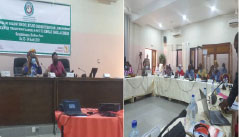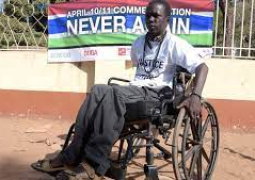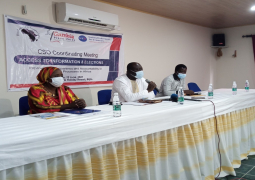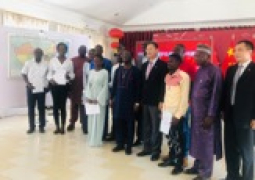
According to the Diagnostic Study Report, 90% of women participate in cross border trade. Officials said the objectives of the convergence is to validate the study to facilitate free movement of women in cross border trade.
The following Member States were represented: the Republics of Benin, Burkina Faso, Côte d’Ivoire, The Gambia, Ghana, Guinea, Liberia, Mali, Niger, Nigeria, Senegal, and Togo.
The meeting was also attended by the ECOWAS Commission and its resource persons (Borderless Alliance, ENDA CACID, the West African Women's Association and the German Development Cooperation Agency (GIZ).
Kajali Sonko, the deputy permanent secretary at the Ministry of Gender, Children and Social Welfare, who is also the overseer of the directorate of Gender Equality and Women Empowerment, formely Women's Bureau including some senior government officials are representing the country at the two day high level meeting.
DPS Kajali Sonko, who was contacted for comments reaffirmed government’s commitment to women’s empowerment crusade, saying: “The numerous intervention and programmes initiated by the government of President Adama Barrow are clear manifestation of his government readiness to address all issues affecting Gambian women especially on cross border issues.”
Salifou Tiemtore, director of the Customs Union and Taxation of the ECOWAS Commission, underscored the significance of the convergence.
He congratulated the Commission on this initiative and insisted on the need for a strong political willingness within the Member States to facilitate the implementation of this capacity building project for small-scale cross-border women traders.
He also wished that the outcome of the meeting could help strengthen intra-community trade in West Africa.
Speaking on behalf of the president of the ECOWAS Commission, H.E. Jean Claude Kassi Brou, the director of the Directorate of Customs Union and Taxation, welcomed the participants and thanked the delegation from Abuja.
He then thanked the European Union and the government of the Federal Republic of Germany through GIZ for their financial support. He also recalled the need for that workshop which is the first experience for his department as regard to customs issues.
He voiced his hope that a realistic action plan could be drafted as a result of the meeting as this is likely to be a solution for the improvement of the conditions of movement for these small-scale cross-border women traders in the community that will positively impact intra-regional trade flow.





